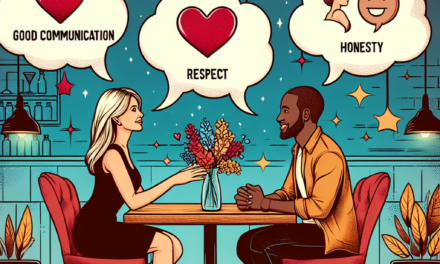Relationships have changed a lot in the last few decades. Not all romantic connections today land clearly in traditional boxes like “dating,” “exclusive” or “on the path to marriage.” Cozying up to underdefined relationships, terms like “situationship” and “friends with benefits” (FWB) have come about to label forms of connections that can be romantic, sexual, or emotionally intimate — but don’t align with traditional expectations. For grown-ups and (adult) love birds navigating these new dynamics, it’s important to know what they are, their advantages and disadvantages, and how to manage them responsibly. complexity
What Is a Situationship?
A situationship is a romantic relationship that does not have a clear definition or established boundaries. That gray area between casual dating and an exclusive relationship. You could be spending time together, dating, having emotional intimacy, or even being sexual. But there’s nothing in the way of firm commitments or expectations.
Situationship Defined: 4 Key Traits
01:Unclear Boundaries: There’s no clear commitment to exclusivity, the future, or roles.
02:Emotional Ambiguity: There are feelings, but one or both parties steer away from labeling them.
03:No Commitment: No one talks about where this is going.
04:Transitional by Default” Situationships can last forever but are often viewed as transitional.
Situationships benefit people who seek connection and companionship without the expectations of traditional commitment. But the fluidity of such arrangements can also have the effect of leaving some feeling unfulfilled or wondering where they fit into the other person’s life.
open relationships
What do friends with benefits mean?
A friends-with-benefits (FWB) relationship is where two individuals continue being friends while engaging in sexual activities with each other without any commitment toward each other romantically. Unlike in Situationships, where emotional intimacy may be central, FWB relationships prioritize fun and physical connection while minimizing emotional involvement.
Friend With Benefits Hallmarks:
01:Friendship Focus: There is already a platonic connection outside of sexual interactions.
02:Sexual Casualness: It is the non-commitment nature of physical connection.
03:Mutual Agreement: Boundaries are typically established before any action, for example, “No falling in love”.
04F:lexibility: Participants can continue to pursue sex or romance with anyone else.
Friends-with-benefits relationships can be attractive to adults looking for intimacy without the time, effort or emotional demands attached to traditional dating. But they have their challenges, especially when one party has deeper feelings. open relationships
Case on point: Situationship vs Friends With Benefits
| Aspect | Situationship | Friends With Benefits |
| Emotional Bond | There may be a growing emotional connection | Mostly limited to friendship |
| Sexual Relationship | Intimate or non-intimate) May or may not include intimacy | Central to the arrangement |
| Commitment Level | Unsure, but possible romantic implicationS | Not romantic or serious in any way |
| Communication Frequency | Often established on the same deterministic basis as a relationship, hence frequent. | Less frequent, often limited |
| Longevity | It can become a relationship or die | Tends to be temporary |
The differences can help adults decide what dynamic works for them.
FIND YOUR RHYTHM OF DATING
The Emotional and Social Implications of Modern RelationshipsStep by Step to Make Better ChoicesImage by giphy.com Dating in modern times is complicated. Who is… Both situationships and friends with benefits subvert social conventions around romance, commitment, and intimacy. Although they can allow for freedom and flexibility, they can also have potentially emotional and social consequences.
The Upsides:
01)Ability to Explore: These relationships enable people to have companionship, intimacy, or connection without the burden of exclusivity and/or commitment.
02)Personal Growth: The process of setting boundaries and communicating them enables individuals to better understand themselves and what they want in a relationship.
02)Freedom & Enjoyment: Unlike ‘normal’ relationships, you’re not pressured to fit into the societal molds

The Downsides:
Misaligned Expectations: One person might want more (emotionally or romantically) than the other is ready to give, which could lead to heartache or conflict.
Ambiguity Breeds Anxiety: Who knows what “this” is or where “this” is going?
Envy or resentment: Having a Situationship or FWB can create envy or feeling undervalued, especially if exclusivity isn’t discussed.
Social Stigma: While becoming more common, there can be some social judgment on the adults who choose to have alternative relationship structures.
Strategies for Avoiding Situationships and FWB Arrangements
Whether a situationship or a friends-with-benefits type of relationship is what draws you, handling these dynamics correctly requires honesty, self-awareness, and open communication. Here are some suggestions for navigating the waters so you can all succeed, drama-free and without hurt feelings. open relationships
Clarify Your Intentions
Before stepping into any kind of modern-day relationship, consider what you want. Are you seeking out emotional connection, companionship, or simply physical intimacy? Only then, when you’ve been honest with yourself, will it be far simpler for you to convey your expectations to the other person.
Have “The Talk”
Talk boundaries early to make sure you’re on the same page. For situationships, discuss whether exclusivity is assumed. FWB — agree on the “no strings” rule but be willing to revisit this if something changes. Later on, open communication helps prevent misunderstandings.
Respect Boundaries
Then, if you set boundaries, enforce them. If the other person is not interested in a romantic commitment or takes no step to deepen the connection, don’t force the issue. Crossing boundaries erodes trust — and the relationship.
Regularly Check-In
Feelings evolve. What begins as a fun, casual dynamic can shift toward something more emotionally charged. Have regular “check-ins” to talk about how you’re feeling and where the relationship is at.
Be Honest About Feelings
If your feelings begin to shift, it’s vital to communicate that with the other person — even if it’s uncomfortable. Pretending you’re able to keep the status quo while secretly longing for more will only hurt you and him in the long run.
Protect Yourself (Emotionally and Physically)
Relationships, situationships, and “FWB” (friends with benefits) can all leave you heartbroken and confused. Manage your expectations and know when to walk away. It’s also important to practice safe sex and talk about STDs with your partner.
Timing Is Everything Move When the Time Is Right
If a situationship or friends-with-benefits situation no longer complements your personal needs or values, it can be helpful to set a boundary and back out. Giving up a relationship that leaves you feeling miserable or unappreciated is not worth the emotional cost.
Relationships are a thing of the past. Wait, What?
Now, not everyone flourishes in situations or FWB dynamics. For some, they are flexible, fun, and low-pressure. For others, the absence of devotion and distinct lines isn’t satisfying. Here’s how to determine if these arrangements align with your personality and needs:
They Might Be Right for You If: You value freedom and are not into traditional labels, or want no-strings fun while concentrating on other parts of your life (career, hobbies, etc.).
They may not work for you if: You get attached easily; you need a sense of emotional security; or you develop romantic feelings that become stronger over time.
Ultimately, there is no “right” way to do relationships. The important thing is to know yourself and to be open to holding conversations that are mutually respectful and honest with your partner.

The Modern Relationship Decoded: Final Thoughts
Going through a situationship or friends-with-benefits arrangement can be a unique experience that is filled with the chance to form connections, gain enjoyment, and discover aspects of yourself. Yet they also demand maturity, clarity, and respect. The secret to success for adults and (the love birds checking out these dynamics) is open communication, setting boundaries, and an awareness of what work your emotional needs are doing.
No single way works for modern relationships. No matter whether you’re in a situationship, FWB, or some other completely undefined state, the most important part is establishing a connection that feels right for you and your partner.






